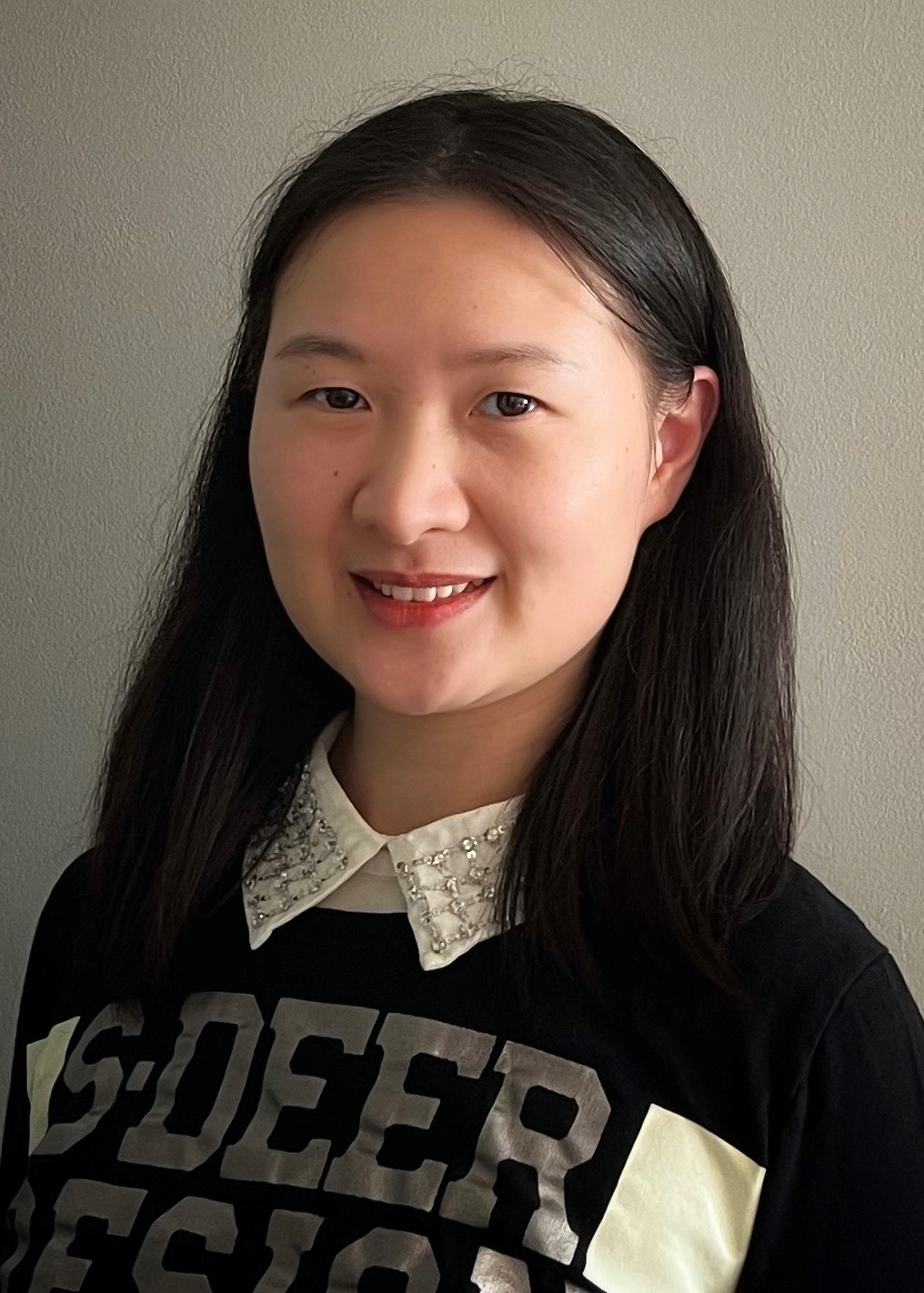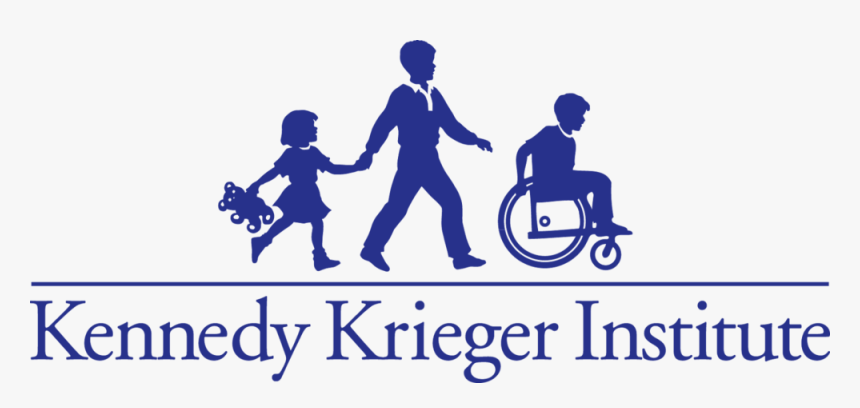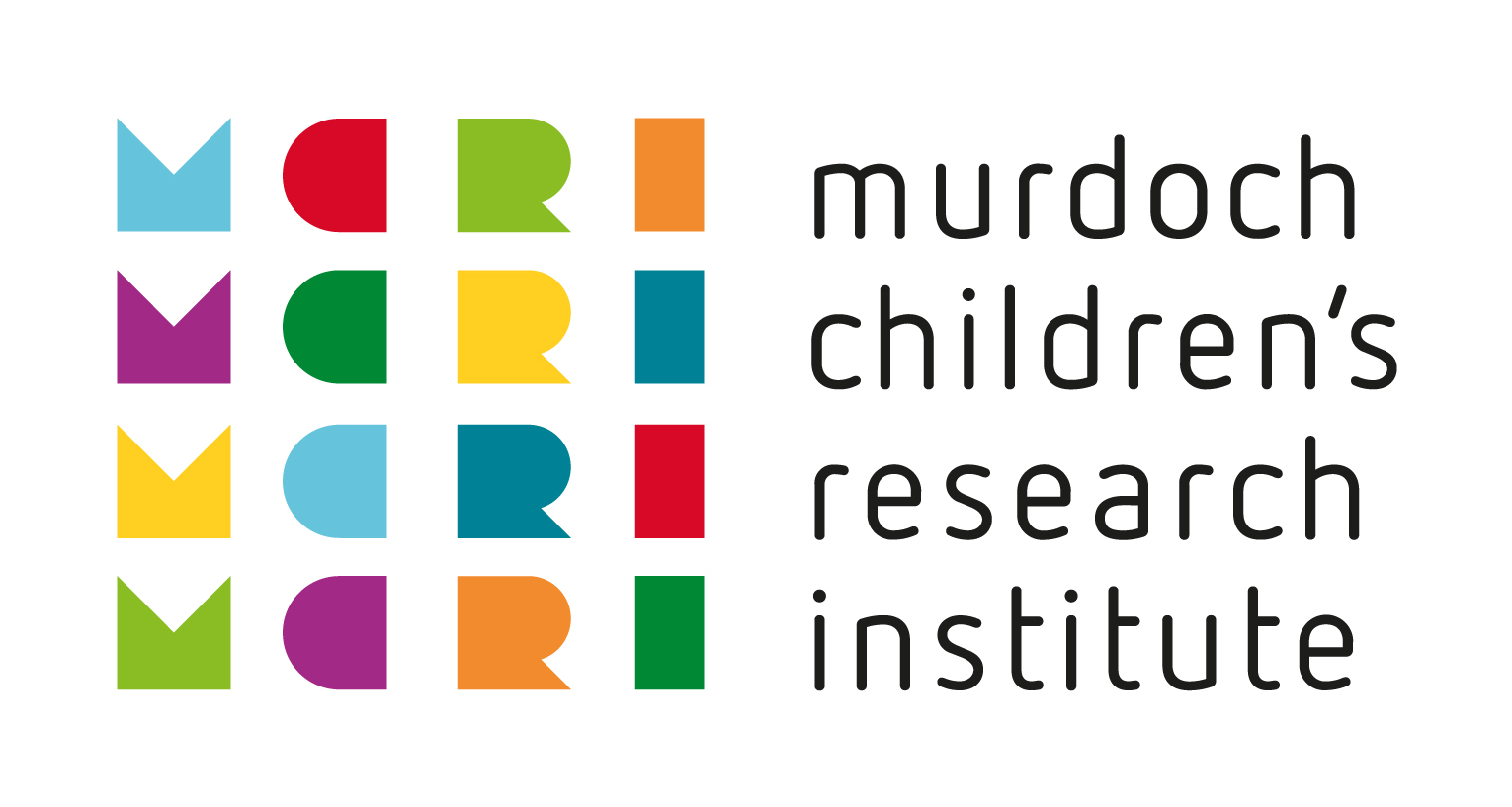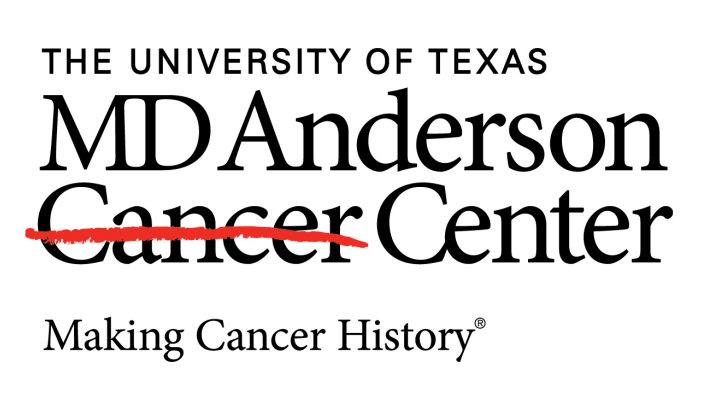Development, Environment, and Resilience (DEaR) Lab
Our lab investigates how biological and environmental factors influence individual health and development in underrepresented groups, such as families with genetic disorders. We hope to identify mechanisms that can promote resilience in these underrepresented groups. Our ultimate goal is to inform the development of evidence-based intervention programs personalized to these groups to promote their mental health and to advocate patient-centered care.
Our research utilizes various advanced quantitative methodologies such as structural equation modeling, time-varying effect modeling, multilevel modeling, latent profile analysis, meta-analysis, and integrative data analysis. Dr. Hou is enthusiastic about advancing developmental and clinical science by applying advanced quantitative methods and promoting open science practices, data sharing, and integrative data analysis.
Lab Members
Dr. Yang Hou, Principal Investigator, is an Assistant Professor in the Department of Behavioral Sciences and Social Medicine in the College of Medicine at Florida State University. Her research examines how biopsychosocial factors shape neurobehavioral development—including cognitive, academic, socioemotional, and behavioral functioning—among underrepresented groups such as ethnic minority youth and individuals with genetic conditions, particularly neurofibromatosis type 1 (NF1).
Her primary research program uses innovative and advanced quantitative methods to uncover patterns and predictors of neurobehavioral development across the lifespan in individuals with NF1 and, increasingly, those with other genetic disorders associated with neurodevelopmental risk. Ultimately, she aims to design and test interventions that improve neurobehavioral functioning and quality of life for individuals affected by these conditions. She is also deeply committed to fostering collaborative science and open-science practices to accelerate discovery and strengthen research transparency in the field.
Dr. Hou has published more than 50 peer-reviewed articles in leading journals, including American Psychologist , Journal of the American Academy of Child and Adolescent Psychiatry , Pediatrics , Neuroscience & Biobehavioral Reviews , Neuropsychology Review , and Child Development . Her work has been funded by the U.S. Department of Defense and the Children’s Tumor Foundation.
She has received numerous prestigious awards, including the Association for Psychological Science Rising Star Award and the American Psychological Association Early Career Outstanding Paper Award. At FSU, she has been recognized with the Outstanding Junior Faculty Researcher Award and the University Teaching Award for Inclusive Teaching and Mentoring.
Dr. Hou serves on the editorial boards of Developmental Psychology , Journal of Research on Adolescence , Journal of Youth and Adolescence , Cultural Diversity & Ethnic Minority Psychology , and Frontiers in Psychiatry . She has also served as an ad hoc reviewer for many journals, such as JAMA Pediatrics , American Psychologist , Psychological Medicine , Child Development , and Journal of Happiness Studies .
Email address: yang.hou@med.fsu.edu ; Faculty Profile ; ResearchGate ; Google Scholar ; CV
Research Scientist

Dr. Jiaxiu Song is a research scientist in the Department of Behavioral Sciences and Social Medicine at the College of Medicine, Florida State University. She received her doctoral degree from Department of Human Development and Family Sciences at The University of Texas at Austin (2017-2022). Her research focuses on understanding the risk and resilience factors (primarily cultural and familial factors) that impact adolescents’ health (e.g., anxiety and depression) and health behaviors (e.g., sleep and substance use). Her recent research focuses on the developmental pattern of ADHD symptoms among children with Neurofibromatosis type 1 (NF1).
Dr. Song is proficient with advanced data analysis, including structural equation modeling, multilevel modeling, and causal inference methods such as propensity score matching, using Mplus, SAS, and R. She has published 16 manuscripts in prestigious peer-reviewed journals including Developmental Psychology, Child Development, Journal of Youth and Adolescence, and Experimental and Clinical Psychopharmacology.
Postdoctoral Scholars

Dr. Dan Liuis a postdoctoral scholar in the Department of Behavioral Sciences and Social Medicine in the College of Medicine at Florida State University. She completed her doctoral training at the Family Sciences Department, University of Kentucky (2016-2022). Her research focuses on the importance of factors including family processes (e.g., parenting, parent-child relationship, maternal vs. paternal parenting), self-control, and sleep in adolescent mental health (e.g., depression, anxiety) and problem behaviors (e.g., deviance, externalizing problems, bullying), patterns of the associations, as well as the underlying mechanisms. Her recent research focuses on socioemotional development in children with Neurofibromatosis type 1 (NF1).
Dr. Liu is proficient in data analytical skills, including structural equation modeling, hierarchical linear modeling, and meta-analysis, using Mplus, AMOS, HLM, and R. During her doctoral training, she published seven manuscripts in prestigious journals, including Psychological Assessment, Developmental Psychology, and Journal of Adolescence. She has also served as an ad hoc reviewer for journals such as the Journal of Youth and Adolescence and PlosOne.
 Dr. Liyan Yuis a postdoctoral scholar in the Department of Behavioral Sciences and Social Medicine at the College of Medicine, Florida State University. She obtained her doctoral degree from the Psychology Department of The Education University of Hong Kong (2020-2023). Her research primarily focuses on various factors impacting reading comprehension, including family processes (e.g., family SES, parenting), family investment (e.g., home literacy environment, number of children's books), social-emotional skills, cognitive-linguistic skills (e.g., working memory, non-verbal intelligence, vocabulary knowledge, and syntactic awareness), and word reading. Recently, she has been conducting research on ADHD symptoms and visual motor skills in children with Neurofibromatosis type 1 (NF1).
Dr. Liyan Yuis a postdoctoral scholar in the Department of Behavioral Sciences and Social Medicine at the College of Medicine, Florida State University. She obtained her doctoral degree from the Psychology Department of The Education University of Hong Kong (2020-2023). Her research primarily focuses on various factors impacting reading comprehension, including family processes (e.g., family SES, parenting), family investment (e.g., home literacy environment, number of children's books), social-emotional skills, cognitive-linguistic skills (e.g., working memory, non-verbal intelligence, vocabulary knowledge, and syntactic awareness), and word reading. Recently, she has been conducting research on ADHD symptoms and visual motor skills in children with Neurofibromatosis type 1 (NF1).
Dr. Yu is proficient in data analysis, particularly in the areas of meta-analysis and structural equation modeling (including mediation, moderation, cross-lagged panel, and latent growth curve models) using Mplus and R. During her doctoral training, she has published manuscripts in journals such as Reading and Writing, Education Sciences, and Frontiers in Psychology. Additionally, she serves as a reviewer for journals like Frontiers in Human Neuroscience.

Dr. Junyan (Joanne) Tianis a postdoctoral scholar in the Department of Behavioral Sciences and Social Medicine in the College of Medicine at Florida State University. She received her doctoral degree in Human Development and Family Studies from Penn State University (2018-2024). Her research examines cognitive functioning (e.g., memory, attention and processing speed), and its relationships with everyday activities among older adults, with a particular emphasis on underrepresented populations. Her recent research focuses on cognitive function in middle-aged and older adults with Neurofibromatosis type 1 (NF1).
Dr. Tian is proficient with advanced data analysis, including structural equation modeling, multilevel modeling, and time-series analysis, using R, SAS, and SPSS. Her research has been published in peer-reviewed journals, such as Innovation in Aging, Policy, Politics, & Nursing Practice, and Journal of Aging and Environment.
Lab Manager / Study Coordinator
 Julia Moreirais a Pre-Medical graduate of Florida State University, with a B.S. in Biomedical Sciences. Her aspirations include attending medical school as well as navigating through a residency and fellowship in her chosen specialty. Julia is passionate about public health, seeking to influence healthcare systems and policies in her future career. Her love for writing and research complements her goals; she envisions a role as a medical reporter/writer for a news network where she can effectively communicate critical health information to the public.
Julia Moreirais a Pre-Medical graduate of Florida State University, with a B.S. in Biomedical Sciences. Her aspirations include attending medical school as well as navigating through a residency and fellowship in her chosen specialty. Julia is passionate about public health, seeking to influence healthcare systems and policies in her future career. Her love for writing and research complements her goals; she envisions a role as a medical reporter/writer for a news network where she can effectively communicate critical health information to the public.
 Lauren Moreyis a pre-medical graduate of Florida State University, where she earned a Bachelor of Science in Interdisciplinary Medical Sciences with a concentration in Clinical Professions. Her career aspirations include attending medical school to become a dermatologist and opening her own private practice. Lauren is BLS, CPR, and CMA-certified, and she has gained valuable hands-on experience working in local medical practices to expand her clinical knowledge. Passionate about research, she plans to remain actively involved in research throughout medical school and is committed to continually advancing her skills and expertise in the field.
Lauren Moreyis a pre-medical graduate of Florida State University, where she earned a Bachelor of Science in Interdisciplinary Medical Sciences with a concentration in Clinical Professions. Her career aspirations include attending medical school to become a dermatologist and opening her own private practice. Lauren is BLS, CPR, and CMA-certified, and she has gained valuable hands-on experience working in local medical practices to expand her clinical knowledge. Passionate about research, she plans to remain actively involved in research throughout medical school and is committed to continually advancing her skills and expertise in the field.

Luke Spotois a pre-medical graduate of Florida State University, where he earned a Bachelor of Science in Biomedical Sciences. He has contributed to a number of systematic reviews and meta-analyses and is proficient in R for data analysis. Following his gap year, he aspires to attend medical school in the Southeastern United States and pursue a residency in internal medicine. After finding a passion for research, he plans to continue conducting research in medical school and beyond as a means of advancing evidence-based care and helping others beyond direct patient encounters.
Research Assistants

Janelle Bunniis a Junior majoring in Exercise Physiology. She expects to graduate in Spring 2026 and plans to attend either Medical or Optometry school.

Than Zin Oo Hlaingis a junior majoring in Biology with a minor in Psychology. She plans to graduate in the spring semester of 2025, and attend medical school, in hopes of pursuing a career in anesthesiology or sports medicine.
 Anabelle Shelhornis a junior Pre-Medical student working to achieve her Bachelor's of Science in Psychology with minors in Chemistry, Child Development, and Biology. Following her graduation in Spring of 2026, she plans to continue her education attending medical school and pursue a career in Pediatrics. Anabelle is currently a certified clinical medical assistant and works at Tallahassee Neurological Clinic in the department of Neurosurgery. She appreciates everything the DEaR Lab has taught her and is excited to continue to contribute to such valuable research.
Anabelle Shelhornis a junior Pre-Medical student working to achieve her Bachelor's of Science in Psychology with minors in Chemistry, Child Development, and Biology. Following her graduation in Spring of 2026, she plans to continue her education attending medical school and pursue a career in Pediatrics. Anabelle is currently a certified clinical medical assistant and works at Tallahassee Neurological Clinic in the department of Neurosurgery. She appreciates everything the DEaR Lab has taught her and is excited to continue to contribute to such valuable research.
 Hannah Iroffis a senior majoring in biology with a minor in chemistry. Following her graduation in the spring of 2025, she plans to further her interest in medicine by attending medical school, in which she will become a dermatologist and eventually, open a private practice.
Hannah Iroffis a senior majoring in biology with a minor in chemistry. Following her graduation in the spring of 2025, she plans to further her interest in medicine by attending medical school, in which she will become a dermatologist and eventually, open a private practice.

Myat Myat Noeis a senior majoring in Psychology with a minor in Chemistry. After graduating in the spring of 2025, she plans to further her education in optometry school and utilize the skills she has gained in the DEaR lab to contribute to research in vision and optometry.

Adriana Aguilerais a senior majoring in Psychology with a minor in Criminology. After graduating in the Fall 2024, she plans to continue her studies by attending graduate school and specializing in Clinical Psychology with Forensic applications.
 Sia Kakkaris a sophomore majoring in Computational Biology. After graduating in the Summer 2026, she plans to attend medical school while researching neurological disorders.
Sia Kakkaris a sophomore majoring in Computational Biology. After graduating in the Summer 2026, she plans to attend medical school while researching neurological disorders.

Stella Falciis a senior majoring in Behavioral Neuroscience with minors in chemistry and general business. After graduating in Spring 2025, she plans to attend graduate school and eventually become a clinical neuroscientist.

Emily McCoyis a senior majoring in biology with a minor in psychology. After graduating in Spring 2025, she plans to attend graduate school and apply to medical school and pursue a career in neurology.

Myintmo Tunis a sophomore majoring in biology with minors in mathematics and chemistry. After graduating in the Spring 2027, he plans to attend medical school in hopes to become a pediatrician.

Sara Goldbergis a sophomore majoring in Psychology and Public Health with minors in biology and chemistry. After graduating in Spring 2027, she plans to attend PA school and later work in the orthopedic field.
Medical and Bridge Students

Nina Truongis a first-year medical student. She graduated from the University of Florida in 2023 with a Bachelor of Science in Preprofessional Biology. She is grateful for the mentorship and skills she gained through the DEaR Lab and looks forward to applying them in the practice of evidence-based medicine.

Brittney Changis a BRIDGE student who received her undergraduate degree from Florida State University in 2021 with a Bachelor of Science in Interdisciplinary Medical Sciences. After earning her master's degree in biomedical sciences, she will join the class of 2029 at the Florida State University College of Medicine.
Collaborators

Carrie Bearden, Ph.D.
Professor; Director, Center for the Assessment and Prevention of Prodromal States Department of Psychology
University of California - Los Angeles

Aprile D. Benner, Ph.D.
Professor Department of Human Development and Family Sciences
The University of Texas at Austin

Shruti Garg, Ph.D.
Clinical Senior LecturerDivision of Psychology & Mental Health
The University of Manchester

Yafit Gilboa, Ph.D.
Senior Lecturer
School of Occupational Therapy
The Hebrew University of Jerusalem

Jennifer Janusz, Psy.D.
Program Director, Neurofibromatosis Program
University of Colorado

Sihui (Echo) Ke, Ph.D.
Assistant Professor Modern & Classical Languages, Literatures & Cultures
University of Kentucky

Su Yeong Kim, Ph.D.
Professor Department of Human Development and Family Sciences
The University of Texas at Austin

Bonita Klein-Tasman, Ph.D.
Professor of Psychology, Graduate School Associate Dean
College of Letters & Science
University of Wisconsin–Milwaukee

Stepanie M. Morris, M.D.
Medical Director, Center for Autism and Related Disorders (CARD)
Kennedy Krieger Institute

Jonathan M. Payne, Ph.D.
Co-Group Leader/Principal Research Fellow, Muscle Research Group
Murdoch Children's Research Institute

Natalie Pride, Ph.D.
Clinical Neuropsychologist, Kids Neuroscience Centre
Children's Hospital at Westmead

Peter L. Stavinoha, Ph.D.
Professor Department of Pediatrics Patient Care
The University of Texas MD Anderson Cancer Center

Xiuhong Tong, Ph.D.
Assistant Professor Department of Psychology,
The Education University of Hong Kong

Karin S. Walsh, Psy.D.
Co-Director, Pre-Doctoral Externship Training Program, Pediatric Neuropsychology
Children's National Hospital

Pamela L. Wolters, Ph.D.
Director, Health Psychology and Neurobehavioral Research Pediatric Oncology Branch
National Cancer Institute
Research
Neurobehavioral development in individuals with neurofibromatosis type 1 (NF1)
NF1 is a genetic disease affecting approximately 1 in 2,700 people globally. Individuals with NF1 often develop various tumors and exhibit more neurobehavioral problems (e.g., cognitive deficits and learning difficulties) than the general population. Our research aims to comprehensively understand neurobehavioral development (i.e., cognitive, academic, socio-emotional, and behavioral development) in individuals with NF1 by applying innovative methodologies. Knowledge from this line of work will be critical for guiding future patient management and informing future intervention studies and policies related to the NF1 population. Below are descriptions of ongoing projects.
Review-NF1: Systematic Reviews and Meta-Analyses on Neurobehavioral Function in NF1
The Review-NF1 initiative brings together research from around the world to better understand neurobehavioral functioning in people with NF1. Our team conducts systematic reviews and meta-analyses to summarize what is known and to identify important gaps in the literature. Current projects focus on:
- ADHD symptoms
- Internalizing and externalizing problems
- Academic achievement
- Perceptual–motor skills
- Effectiveness of treatments and interventions
These reviews provide clear, evidence-based insights that can guide future research and clinical care for individuals with NF1.
IDA-NF1: Integrative Data Analysis of Neurobehavioral Function in Children and Adolescents with NF1
IDA-NF1 combines multiple neuropsychological datasets from children and adolescents with NF1 (ages 2–18) to create one of the largest and richest NF1 developmental datasets to date. Using advanced statistical tools (e.g., time-varying effect modeling, latent profile analysis), we examine:
- How neurobehavioral functioning varies from early childhood through adolescence
- Whether distinct subgroups of children show different neurobehavioral profiles
- Which factors predict better or worse developmental outcomes
This project is funded by the Department of Defense Neurofibromatosis Research Program (2021–2025)and aims to generate clinically meaningful knowledge to support early identification and intervention.
SMART-NF1: Daily Resilience and Neurobehavior in Adolescents with NF1
Most NF1 research captures behavior or cognition during a single clinic visit. SMART-NF1 takes a different approach—studying neurobehavior as it naturally unfolds in daily life. Using brief smartphone surveys and Fitbit trackers, we examine how:
- Parenting, social support, and coping
- Physical activity and sleep
- Daily stressors and emotions
relate to real-time cognitive, emotional, and behavioral functioning among adolescents with NF1 (ages 13–17). Findings will support the development of practical, everyday strategies to improve quality of life.
This project is funded by the FSU Seed Grant and Institute for Pediatric Rare Diseases (2024–2026).
NF1 Cognitive Aging: Understanding Cognitive Health in Middle-Aged and Older Adults with NF1
Little is known about how thinking skills change as adults with NF1 age. This project addresses that gap by studying cognitive aging in a large sample of middle-aged and older adults with NF1. We aim to identify:
- Age-related differences in cognitive functioning
- Subgroups who may be at greater risk for cognitive decline
- Psychosocial factors (e.g., well-being, social connection, personality) that support healthy cognitive aging
Results will help adults with NF1, families, and clinicians better understand cognitive health across adulthood and guide future intervention development.
This study is funded by the Children’s Tumor Foundation Clinical Research Award (2024–2026).
MindTrack-NF1: Daily Thinking and Experiences in Adults with NF1
MindTrack-NF1 explores how adults with NF1 think, feel, and function throughout their everyday lives. Instead of relying solely on clinic-based assessments, this study uses short smartphone surveys and wearable devices (e.g., Fitbits) to capture:
- Real-time cognitive performance
- Daily mood and stress
- Sleep and activity patterns
- Moments of challenge and resilience
Why this matters:
- Adults with NF1 are understudied.Most research focuses on children, leaving major gaps in understanding adult cognitive health.
- Daily life matters.Clinic tests show one moment in time; MindTrack-NF1 reveals how thinking changes across contexts and routines.
By identifying daily predictors of cognitive well-being, MindTrack-NF1 aims to support future interventions that help adults with NF1 maintain cognitive health and quality of life.
This project is funded by the Department of Defense Neurofibromatosis Research Program (2025–2028).
Informant discrepancies in reports of family processes and child mental health
A common and challenging methodological issue in clinical and developmental studies is that different family members often report discordant information on the same study construct. My research sheds light on this issue by examining the patterns, antecedents, and consequences of parent-adolescent discordance in their reports of family processes and child mental health. This line of research highlights that parent-adolescent discordance in reports of family processes has substantive meaning and significant implications for adolescent development. The findings have broad implications for social and clinical science methodology concerning how to interpret and handle informant discordance.
This line of research is not our lab's primary focus currently, but Dr. Hou continues to collaborate with others on this and is happy to work with mentees interested in this research topic.
Environmental factors affecting child/adolescent health
Our research examines how contextual stressors (e.g., discrimination), teachers, parents, and peers jointly influence child/adolescent mental health. For example, we identified multiple strengths of families and adolescents that moderate the association between contextual stressors and adolescent mental health (e.g., depression, anxiety, delinquency), such as positive parenting, racial socialization, parent-child relationships, and psychological resilience. We also identified various mediating processes linking contextual stressors and child/adolescent mental health. This line of work will inform policymakers and practitioners on the malleable factors to promote optimal child development in the face of adverse stressors.
Dr. Hou is developing new proposals integrating this line and the first line of work and is happy to work with mentees interested in this research.
Publications
Neurobehavioral development in children with neurofibromatosis type 1 (NF1)
Peer-reviewed journal articles:
-
Yu, L. * , Liu, D. * , Payne, J., Wu, Xian., Thompson, H., Moreira, J., Morey, L., Mujica, B. F., & Hou, Y.(in press) Academic Achievement of Children and Adolescents with Neurofibromatosis Type 1: A Systematic Review and Meta-Analysis . Neuropsychology Review .
-
Hou, Y*, Yu, L*., Jamnik, M.R., Liu, D., Wilson-Lemoine, E., Wu, X., Moreira, J., Mujica, B.F., Mukhopadhyay, E.S., Novotney, A., Spoto, L., Peper, M. &. Payne, J.M. (2025). Systematic review: biopsychosocial factors related to attention-deficit/hyperactivity disorder in children/adolescents with neurofibromatosis type 1. Neuroscience and Biobehavioral Reviews. https://authors.elsevier.com/a/1lnDYY3M3lsWg
- Yu, L., Liu, D., Payne, J., Zhang, J., Moreira, J., Mukhopadhyay, E., Novotney, A., Mujica, B., Chown, M., Killam, J., & Hou, Y.(2025). Visuospatial and Visuomotor Abilities of Individuals with Neurofibromatosis Type 1: A Systematic Review and Meta-analysis. Neuropsychology Review. https://doi.org/10.1007/s11065-025-09673-7
- Gutmann, D.H. Anastasaki, C., Gupta, A., Hou, Y., Morris, S.M., Payne, J.M., Raber, J., Tomchik, S.M., Aelst, L.V., Walker, J.A., & Yohay, K.H. (2025). Cognition and Behavior in Neurofibromatosis Type 1: Report and Perspective from the Cognition and Behavior in NF1 (CABIN) Task Force. Advance online publication. Genes & Development. https://doi.org/10.1101/gad.352629.125
- Liu, D., Yu, L., Wu, X., Moreira, J., Mujica, B., Mukhopadhyay, E., Novotney, A., Rietman, A., & Hou, Y.(2025). Internalizing and Externalizing Problems in Individuals with Neurofibromatosis Type 1: A Systematic Review and Meta-analysis. Systematic Reviews, 14, 20. https://doi.org/10.1186/s13643-024-02749-0
- Hou, Y., Zong, X., Wu, X., Liu, D., Wolters, P. L., Janusz, J., Walsh, K. S., Morris, S. M., Payne, J. M., Pride, N., Garg, S., Robinson, L., & Stavinoha, P. L. (2025). Academic achievement in children with neurofibromatosis type 1. Pediatrics, 155(2), e2024067016. https://doi.org/10.1542/2020-000123
- Hou, Y., Yu, L., Liu, D., Wilson-Lemoine, E., Wu, X., Moreira, J., Mujica, B., Mukhopadhyay, E. +, Novotney, A. +, Payne, J.M. (2024). Systematic Review and Meta-analysis: Attention Deficit/Hyperactivity Disorder Symptoms in Children with Neurofibromatosis Type 1. Journal of the American Academy of Child and Adolescent Psychiatry. https://doi.org/10.1016/j.jaac.2024.09.011
- Hou, Y., Wu, X., Allen, T., Toledo-Tamula, M. A., Martin, S., Baldwin, A., Gillespie, A., Goodwin, A., Widemann B. C., & Wolters, P. L. (2023) Longitudinal association between executive function and academic achievement in children with neurofibromatosis type 1 and plexiform neurofibromas. Journal of the International Neuropsychological Society. https://doi.org/10.1017/S1355617723000103
- Hou, Y., Wu, X., Liu, D., Martin, S., Toledo-Tamula, M. A., Allen, T., Baldwin, A., Gillespie, A., Goodwin, A., Widemann B. C. , & Wolters, P. L. (2022) Demographic and Disease-Related Predictors of Socioemotional Development in Children with Neurofibromatosis Type 1 and Plexiform Neurofibromas: An Exploratory Study. Cancers. Advance online publication. doi: 10.3390/cancers14235956. https://www.mdpi.com/2072-6694/14/23/5956
- Hou, Y., Allen, T., Wolters, P. L., Toledo-Tamula, M. A., Martin, S., Baldwin, A., Reda, S., Gillespie, A., Goodwin, A. & Widemann B. C. (2020) Predictors of cognitive development in children with neurofibromatosis type 1 and plexiform neurofibromas. Developmental Medicine & Child Neurology, 62, 977-984. https://doi.org/10.1111/dmcn.14489 .
Informant discrepancies in reports of family processes and child mental health
Peer-reviewed journal articles:
- Wen, W., Sim, L., Hou. Y., Chen. S., & Kim. S.Y. (2023) Change patterns of mother-adolescent perceived parenting and the corresponding trajectories in their internalizing symptoms . Developmental Psychology. Doi:10.1037/dev0001620.
- Wen, W., Chen. S., Kim. S.Y. & Hou. Y.(2023). Mother-Adolescent Perceived Parenting Profiles and Mexican-origin Adolescents’ Academic Performance . Journal of Youth and Adolescence, 52, 344-358 . Doi: 10.1007/s10964-022-01696-0.
- Chen, S., Jelsma, E., Hou,Y., Benner, A.D, and Kim, S.Y. (2021) Antecedents and consequences of discrepant perceptions of racial socialization between parents and adolescents within Mexican-origin families. Journal of Youth and Adolescence, 50, 2412–2426. doi: 10.1007/s10964-021-01487-z.
- Hou, Y., Benner, A.D., Kim, S. Y., Chen, S., Spitz, S., Shi, Y., & Beretvas, T. (2020) Discordance in parents’ and adolescents’ reports of parenting: A meta-analysis and qualitative review. American Psychologist, 75, 329-348. doi: 10.1037/amp0000463.
- Hou, Y., Kim, S. Y., & Benner, A.D. (2018). Parent-adolescent discrepancies in reports of parenting and adolescent outcomes in Mexican American immigrant families. Journal of Youth and Adolescence, 47, 430-444. doi: 10.1007/s10964-017-0717-1.
Environmental factors affecting child/adolescent health
Parental ethnic minority-related experiences, family processes, and adolescent outcomes
Peer-reviewed journal articles:
- Yan, J., Sakahara, T., Chen, S., Song, J., Hou, Y., Zhang, M., & Kim, S.Y. (2025). Cultural stress, parenting practices, and mental health: A dyadic approach. Developmental Psychology. Advance online publication. https://doi.org/10.1037/dev0001954
- Song, J., Hou, Y., Hazen-Swann, N. L., Lorenzo-Blanco, E. I., & Kim, S. Y. (2022) Do mothers’ experiences count? An actor-partner model of language brokering experiences in Mexican immigrant families. Journal of Youth and Adolescence. Advance online publication. doi: 10.1007/s10964-022-01586-5.
- Yan, J., Hou, Y., Shen, Y., & Kim, S. Y. (2022). Family obligation, parenting, and adolescent outcomes among Mexican American families. Journal of Early Adolescence, 42, 58-88 . doi: 10.1177/02724316211016064 .
- Zhang, M., Kim, S. Y., Hou, Y., & Shen, Y. (2020) Parent-adolescent acculturation profiles and adolescent language brokering experiences in Mexican immigrant families. Journal of Youth and Adolescence, 49, 335–351. doi: 10.1007/s10964-019-01064-5.
- Varner, F., Hou, Y., Ross, L., Hurd, N., & Mattis, J. S. (2019) Dealing with discrimination: Parents’ and adolescents’ racial discrimination experiences and parenting in African American families. Cultural Diversity & Ethnic Minority Psychology. Advance online publication. doi: 10.1037/cdp0000281.
- Kim, S. Y., Chen, S., Hou, Y.*, Zeiders, K., & Calzada, E. (2019) Mexican American parental socialization profiles: Considering cultural socialization and general parenting practices. Cultural Diversity & Ethnic Minority Psychology, 25, 439–450. doi: 10.1037/cdp0000234.
- Juang, L., Hou, Y., Douglass, S, & Kim, S. Y. (2018). Time-varying effects of family conflict and youth adjustment among Chinese American families. Developmental Psychology, 54, 938-949. doi: 10.1037/dev0000475.
- Hou, Y., Neff, L. & Kim, S. Y. (2018). Language acculturation, acculturation-related stress, and marital quality in Chinese American couples. Journal of Marriage and Family, 80, 555-568. doi: 10.1111/jomf.12447.
- Hou, Y., Kim, S. Y., Hazen, N. L. & Benner, A. D. (2017). Parents’ perceived discrimination and adolescent adjustment in Chinese American families: Mediating family processes. Child Development, 88, 317-331. doi: 10.1111/cdev.12603.
- Hou, Y., Kim, S. Y., & Wang, Y. (2016). Parental acculturative stressors and adolescent adjustment through interparental and parent-child relationships in Chinese American families. Journal of Youth and Adolescence, 45, 1466-1481. doi: 10.1007/s10964-016-0441-2.
- Kim, S. Y., & Hou, Y.(2016). Intergenerational transmission of cultural orientations in Chinese American families: The role of bicultural socialization. Journal of Youth and Adolescence, 45, 1452-1465. doi: 10.1007/s10964-016-0423-4.
- Kim, S. Y., Wang, Y., Shen, Y., & Hou, Y.(2015). Stability and change in adjustment profiles among Chinese American adolescents: The role of parenting. Journal of Youth and Adolescence, 44, 1735-1751. doi: 10.1007/s10964-015-0303-3.
- Kim, S. Y., Wang, Y., Chen, Q., Shen, Y., & Hou, Y.(2015). Parent-child acculturation profiles as predictors of Chinese American adolescents' academic trajectories. Journal of Youth and Adolescence, 44, 1263-1274. doi: 10.1007/s10964-014-0131-x.
Book chapters:
- Kim, S. Y., Zhang, M., Hou, Y.& Shen, Y. (2020) Acculturation, parent-child relationships, and mental health of adolescents in Chinese and Mexican immigrant families. In G. C. Nagayama Hall (Ed.), Immigration and mental health (pp. 25-44). New York: Elsevier.
- Hou, Y.& Kim, S. Y. (2018). Acculturation-related stressors and individual adjustment in Asian American families. In S. S. Chuang & C.L. Costigan (Eds.), Parental roles and relationships in immigrant families: An international approach (pp. 131-145). New York, NY: Springer Science + Business Media.
- Kim, S. Y., Chen, S., Sim, L., & Hou, Y.(2017). Stability and change in parenting and adjustment profiles across early, middle, and late adolescence in Chinese American families. In Y. Choi & H. C Hahm (Eds.), Asian American parenting: Family process and intervention (pp. 69-88). New York, NY: Springer International Publishing. doi:10.1007/978-3-319-63136-3_4
Adolescents’ ethnic minority-related experiences and consequences for their well-being
Peer-reviewed journal articles:
- Kim, S. Y., Song, J., Wen, W., Yan, J., Tse, H. W., Chen, S., Lopez, B. G., Shen, Y., & Hou, Y.(2024). Language brokering profiles of Mexican-origin adolescents in immigrant communities: Socio-cultural contributors and developmental outcomes. Child Development, 95, 1237-1253. Doi: 10.1111/cdev.14078
- Ip, K, Song, J., Wen, W., Yan, J., Hou, Y., Shen, Y., Kamata, A., & Kim, S. Y. (2024) Unique and Interactive Roles of Economic Stress and Discrimination on Heterogeneous Development among Chinese American Adolescents: An 8-year Longitudinal Study. Developmental Psychology . Advance online publication. Doi: 10.1037/dev0001793
- Kim, S. Y., Wen, W., Coulter, K. M., Du, Y., Tse, H. W., Hou, Y., Chen, S., & Shen, Y. (2024). Survival analysis and socio-cognitive factors in the timing of COVID-19 vaccination among Mexican-origin youth. Journal of Racial and Ethnic Health Disparities. Advance online publication. Doi: 10.1007/s40615-024-01995-1
- Kim, S. Y., Chen, S., Wen, W., Yan, J., Song., J., Hou, Y., Zhang, M., Schwartz, S. J., & Shen, Y. (2021). Language brokering-stress transition profiles and marijuana use in Mexican-origin adolescents. Journal of Psychoactive Drugs. 53, 384-393. doi: 10.1080/02791072.2021.1992046.
- Kim, S. Y., Zhang, M., Chen, S., Song, J., Lopez, B. G., Rodriguez, E. M., Calzada, E., Hou, Y., Yan, J., & Shen, Y. (2020) Bilingual language broker profiles and academic competence in Mexican-origin adolescents. Developmental Psychology, 56, 1582–1595. doi: 10.1037/dev0001010.
- Chen, S., Hou, Y., Benner, A.D. & Kim, S. Y. (2020) Discrimination, language brokering efficacy, and academic competence among adolescent language brokers. Journal of Adolescence, 79, 247-257. doi:10.1016/j.adolescence.2020.01.015.
- Juang, L., Shen, Y., Costigan, C., & Hou, Y.(2018) Time-varying associations of racial discrimination and adjustment among Chinese-heritage adolescents in the US and Canada. Development and Psychopathology, 30, 1661-1678. doi: 10.1017/S0954579418001128.
- Kim, S. Y., Hou, Y., Song, J., Schwartz, S. J., Chen, S., Zhang, M., Perreira, K. M., & Parra-Medina, D. (2018). Profiles of language brokering experiences and contextual stressors: Implications for adolescent outcomes in Mexican immigrant families. Journal of Youth and Adolescence, 48, 1629-1648. doi: 10.1007/s10964-018-0851-4.
- Varner, F., Hou, Y., Hodzic, T., Hurd, N., Butler-Barnes, S., & Rowley, S. (2018). Racial discrimination experiences and Black youth adjustment: The role of parenting profiles based on racial socialization and involved-vigilant parenting. Cultural Diversity & Ethnic Minority Psychology, 24, 173-186. doi: 10.1037/cdp0000180.
- Kim, S. Y., Hou, Y., & Gonzalez, Y. (2017). Language brokering and depressive symptoms in Mexican American adolescents: Parent-child alienation and resilience as moderators. Child Development, 88, 867-881. doi: 10.1111/cdev.12620.
- Kim, S. Y., Hou, Y., Shen, Y., & Zhang, M. (2017). Longitudinal measurement equivalence of the language brokering scale for Mexican American adolescents. Cultural Diversity & Ethnic Minority Psychology. 23, 230-243. doi: 10.1037/cdp0000117.
- Hou, Y., Kim, S. Y., Wang, Y., Shen, Y., & Orozco-Lapray, D. (2015). Longitudinal relationships between discrimination and ethnic affect or depressive symptoms among Chinese American adolescents. Journal of Youth and Adolescence, 44, 2110-2121. doi:10.1007/s10964-015-0300-6.
- Kim, S. Y., Shen, Y., Hou, Y., Tilton, K., Juang, L. P., & Wang, Y. (2015). Annual review of Asian American psychology 2014. Asian American Journal of Psychology, 6, 291-332. doi:10.1037/aap0000031.
Book chapters:
- Hou, Y.& Kim, S. Y. (2016). Language brokering. In R. J. R. Levesque (Ed.), Encyclopedia of adolescence (pp. 1-8). New York, NY: Springer. Advance online publication. doi: 10.1007/978-3-319-32132-5_234-2
The influence of peer relationship on adolescent adjustment
Peer-reviewed journal articles:
- Wu, N., Hou, Y. , Zeng Q., Cai, H. & You, J. (2021) Bullying experiences and nonsuicidal self-injury among Chinese adolescents: a longitudinal moderated mediation model. Journal of Youth and Adolescence. Advance online publication. doi: 10.1007/s10964-020-01380-1.
- Benner, A.D., Hou, Y., & Jackson, K. (2020) The consequences of friend-related stress across early adolescence. Journal of Early Adolescence, 40, 249–272. doi: 10.1177/0272431619833489.
- Wu, N., Hou, Y., Chen, P. & You, J. (2019) Peer acceptance and nonsuicidal self-injury among Chinese adolescents: A longitudinal moderated mediation model. Journal of Youth and Adolescence, 48, 1806-1817. doi: 10.1007/s10964-019-01093-0.
- Jiang, Y., You, J., Hou, Y., Du, C., Lin, M-P., Zheng, X., & Ma, C. (2016). Buffering the effects of peer victimization on adolescent nonsuicidal self-injury: The role of self-compassion and family cohesion. Journal of Adolescence, 53, 107-115. doi:10.1016/j.adolescence.2016.09.005.
Others
Peer-reviewed journal articles:
- Benner, A.D., Fernandez, C. +, Hou, Y., & Smith, C. (2021) Parent and teacher educational expectations and adolescents’ academic performance: Mechanisms of influence. Journal of Community Psychology, 49, 2679-2703. doi:10.1002/jcop.22644.
- Wu, N., Hou, Y., Yu, C., & Wang, Q. (2018). Intergeneration transmission of educational aspiration in Chinese families: Identifying mediators and moderators. Journal of Youth and Adolescence, 47. 1238-1251. doi: 10.1007/s10964-018-0820-y.
Resources
Looking for postdocs!
We are looking for postdocs to join our DEaR lab. Please click the link below for a more detailed description of the two positions that have been posted. In addition, our lab has funding for more positions that have not been posted yet. Please email your CV to yang.hou@med.fsu.edu for further discussion.
Postdoc Position in Cognitive Aging.docx (FSU career job ID 56724)
Postdoc Positions_Biopsychosocial Factors in Health Outcomes Across the Lifespan.docx (FSU career job ID 57030 )
Start Date: Flexible start date.
Appointment Length: Can be renewed annually based on performance and funding availability.
Compensation:Competitive salary and benefits depending on qualifications.
Deadline to Apply: Applications are reviewed on a rolling basis until the positions are filled. Apply as soon as possible!
Other postdoc opportunities:
Dr. Hou would also be happy to serve as a mentor for postdocs funded by other sources. Below are some potential sources you may be eligible to apply:
- FSU Provost Postdoctoral Fellowship Program (PPFP)
- K99/R00 Pathway to Independence Award
- Young Investigator Award of Children’s Tumor Foundation
- Early Investigator Research Award from DoD NFRP
Directed Individual Study Opportunities (no opening for Summer and Fall 2025)
Graduate and undergraduate students interested in gaining research experience can email their CVs to Dr. Hou ( yang.hou@med.fsu.edu ) to discuss potential opportunities to participate in our lab’s projects.
Current research projects focus on cognitive, academic, socio-emotional, and behavioral development in individuals with neurofibromatosis type 1 and evaluate interventions/treatments targeting these outcomes. See the "Research" tab for more detailed descriptions of ongoing projects.
Responsibilities in the lab may include:
- Literature search
- Reviewing and coding papers
- Collecting survey and interview data from participants
- Cleaning and analyzing data
- Students with outstanding performance will have the opportunity to be promoted to team leaders for various tasks
Requirements:
- Minimum GPA - 3.5
- Available for at least 9 hours per week (3 credits)
NF1 Cognitive Aging Study
We are recruiting adults with NF1 to participate in a remote NF1 Cognitive Aging Study!
Study Aims:
- to improve understanding of cognitive processes (thinking and memory) among individuals with NF1
- identify potential predictors of cognitive processes, such as age, NF1-related, social, and psychological factors.
This research may help inform future management, care, and interventions related to cognitive struggles among adults with NF1.
To participate, you must:
- have a diagnosis of NF1,
- be 40 years or older,
- be able to read and speak English,
- live in the United States.
What am I being asked to do?
- Participate in a virtual Zoom interview, approximately 30 minutes
- Complete an online survey (may take up to 1 hour).
- Participants will receive $40.
If interested, please provide your contact information and answer a few screening questions at the link: Click Her e .
SMART-NF1 Project (Studying Momentary Assessment of Resilience and Thinking in Neurofibromatosis Type 1)
We are recruiting adolescents with NF1 and their parents to participate in a remote study!
Study Aims:
- To improve understanding of cognitive, behavioral, and socioemotional function in daily lives of adolescents with NF1.
- To identify potential predictors of these functions, such as parenting, social support, coping strategies, physical activity, and sleep.
- This research may help inform future management, care, and interventions related to cognitive, behavioral, and socioemotional function of youths with NF1.
To participate, adolescents must:
- have a diagnosis of NF1,
- be 13 to 17 years old ,
- have a third-grade or higher level of English comprehension ,
- live in the United States,
- have access to a smartphone.
What do participants need to do?
Adolescent:
- Complete an online survey (about 40 minutes).
- Complete short surveys of mood and cognition on smartphone app 3-4 times a day (out of school hours) for two weeks.
- Wear a Fitbit activity tracker (provided by the researchers) for two weeks.
- Receive up to $210 compensation.
One parent or legal guardian:
- Complete an online survey (about 20 minutes).
- Receive $10 compensation.
If interested, please provide your contact information and answer a few screening questions at the link: Click Here .
Introduction
We apply a wide range of statistical methods in research, including but not limited to:
· Research Synthesis Methods
o Meta-analysis
o Integrative data analysis
· Longitudinal data analyses
o Time-varying effect modeling
o Growth modeling
o Cross-lagged panel model
· Mediation and moderation analyses
o Actor partner interdependence model
o Moderated mediation model
· Person-centered analyses to identify subpopulations
o Latent class/profile analysis
o Growth mixture analysis
For each method, we are familiar with the following applications. If you want to discuss any of these with someone, you are welcome to contact Dr. Hou.
· When to use it (e.g., research questions it can address, its data requirements)?
· How to do it (e.g., available software and sample syntax)?
· How to report and interpret the results?
Below we provide sample lab publications using each approach and resources to learn more about each method. We also included some resources for power analysis and clinical trial design .
Resources
Meta-Analysis
Sample publication:
Hou, Y. , Benner, A.D., Kim, S. Y., Chen, S., Spitz, S., Shi, Y., & Beretvas, T. (2020) Discordance in parents’ and adolescents’ reports of parenting: A meta-analysis and qualitative review. American Psychologist, 75, 329-348. doi: 10.1037/amp0000463.
Resources:
A step by step guide for conducting a systematic review and meta-analysis with simulation data
The PRISMA 2020 statement: an updated guideline for reporting systematic reviews
Doing Meta-Analysis in R: A Hands-on Guide
Integrative Data Analysis
Sample publication:
Juang, L., Hou, Y. , Douglass, S, & Kim, S. Y. (2018). Time-varying effects of family conflict and youth adjustment among Chinese American families. Developmental Psychology, 54, 938-949. doi: 10.1037/dev0000475.
Juang, L., Shen, Y., Costigan, C., & Hou, Y. (2018) Time-varying associations of racial discrimination and adjustment among Chinese-heritage adolescents in the US and Canada. Development and Psychopathology, 30, 1661-1678. doi: 10.1017/S0954579418001128.
Resources:
Integrative data analysis: The simultaneous analysis of multiple data sets
Maelstrom Research guidelines for rigorous retrospective data harmonization
Time-Varying Effect Modeling
Sample publication:
Juang, L., Hou, Y. , Douglass, S, & Kim, S. Y. (2018). Time-varying effects of family conflict and youth adjustment among Chinese American families. Developmental Psychology, 54, 938-949. doi: 10.1037/dev0000475.
Juang, L., Shen, Y., Costigan, C., & Hou, Y. (2018) Time-varying associations of racial discrimination and adjustment among Chinese-heritage adolescents in the US and Canada. Development and Psychopathology, 30, 1661-1678. doi: 10.1017/S0954579418001128.
Resources:
Time-varying effect modeling lab at PennState University
Growth Modeling
Sample publication:
Hou, Y. , Allen, T., Wolters, P. L., Toledo-Tamula, M. A., Martin, S., Baldwin, A., Reda, S. +, Gillespie, A., Goodwin, A. & Widemann B. C. (2020) Predictors of cognitive development in children with neurofibromatosis type 1 and plexiform neurofibromas. Developmental Medicine & Child Neurology, 62, 977-984. doi:10.1111/dmcn.14489.
Resources:
Twelve Frequently Asked Questions About Growth Curve Modeling
Growth Modeling: Structural Equation and Multilevel Modeling Approaches
Cross-Lagged Panel Model
Sample publication:
Hou, Y. *, Kim, S. Y., & Wang, Y. (2016). Parental acculturative stressors and adolescent adjustment through interparental and parent-child relationships in Chinese American families. Journal of Youth and Adolescence, 45, 1466-1481. doi: 10.1007/s10964-016-0441-2.
Resources:
Autoregressive and cross-lagged panel analysis for longitudinal data
A critique of the cross-lagged panel model
Actor Partner Interdependence Model
Sample publication:
Hou, Y. *, Neff, L. & Kim, S. Y. (2018). Language acculturation, acculturation-related stress, and marital quality in Chinese American couples. Journal of Marriage and Family, 80, 555-568. doi: 10.1111/jomf.12447.
Hou, Y. *, Kim, S. Y., Hazen, N. L. & Benner, A. D. (2017). Parents’ perceived discrimination and adolescent adjustment in Chinese American families: Mediating family processes. Child Development, 88, 317-331. doi: 10.1111/cdev.12603.
Resources:
Assessing Mediation in Dyadic Data Using the Actor-Partner Interdependence Model
The Actor–Partner Interdependence Model: A model of bidirectional effects in developmental studies
Moderated Mediation Model
Sample publication:
Wu, N., Hou, Y. *, Zeng Q., Cai, H. & You, J. (2021) Bullying experiences and nonsuicidal self-injury among Chinese adolescents: a longitudinal moderated mediation model. Journal of Youth and Adolescence. Advance online publication. doi: 10.1007/s10964-020-01380-1.
Wu, N., Hou, Y. , Chen, P. & You, J. (2019) Peer acceptance and nonsuicidal self-injury among Chinese adolescents: A longitudinal moderated mediation model. Journal of Youth and Adolescence, 48, 1806-1817. doi: 10.1007/s10964-019-01093-0.
Resources:
Addressing Moderated Mediation Hypotheses: Theory, Methods, and Prescriptions
Latent Class/Profile Analysis
Sample publication:
Hou, Y. , Kim, S. Y., & Benner, A.D. (2018). Parent-adolescent discrepancies in reports of parenting and adolescent outcomes in Mexican American immigrant families. Journal of Youth and Adolescence, 47, 430-444. doi: 10.1007/s10964-017-0717-1.
Kim, S. Y., Hou, Y. , Song, J., Schwartz, S. J., Chen, S., Zhang, M., Perreira, K. M., & Parra-Medina, D. (2018). Profiles of language brokering experiences and contextual stressors: Implications for adolescent outcomes in Mexican immigrant families. Journal of Youth and Adolescence, 48, 1629-1648. doi: 10.1007/s10964-018-0851-4.
Resources:
Latent Class Analysis and Latent Profile Analysis
Statistical Power to Detect the Correct Number of Classes in Latent Profile Analysis
Growth Mixture Analysis
Sample publication:
Benner, A.D., Hou, Y. , & Jackson, K. (2020) The consequences of friend-related stress across early adolescence. Journal of Early Adolescence, 40, 249–272. doi: 10.1177/0272431619833489.
Resources:
An Introduction to Latent Class Growth Analysis and Growth Mixture Modeling
Power Analysis
Resources:
Power Analysis and Sample Size, When and Why?
Introduction to Power Analysis - Statistical Consulting - UCLA
Clinical Trial Design
Resources:



